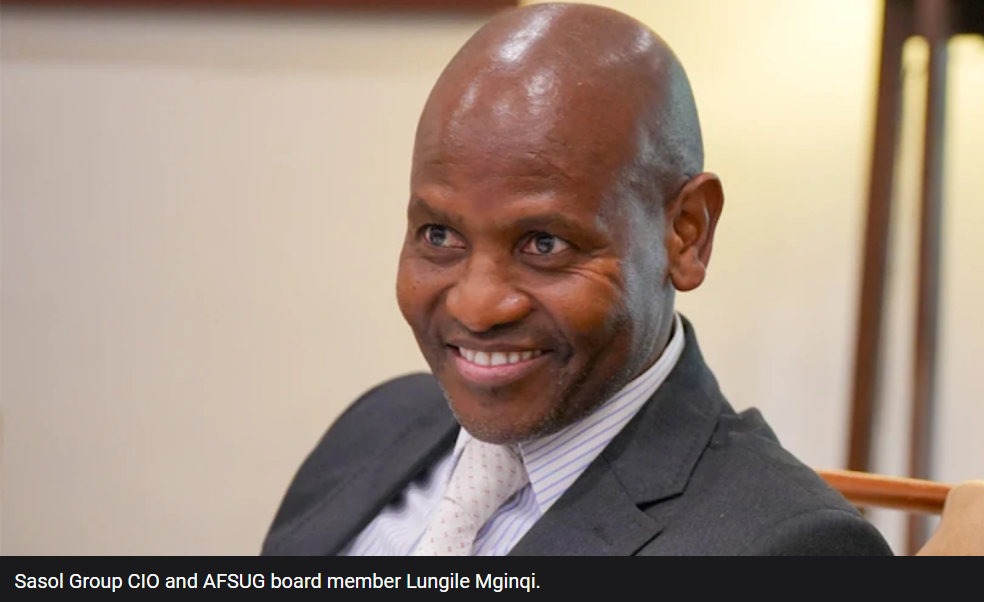
JSE- and NYSE-listed global chemicals and energy company Sasol has undertaken a large-scale digital transformation exercise that will impact its technology landscape, processes, data, and especially its people and ways of work. The company will rely on its own expertise combined with that of its long-time partner, SAP, to drive its digitalisation journey.
Speaking to ITWeb ahead of the AFSUG (African SAP User Group) SAPHILA 2023 conference, to be held from 9 to 11 July at Sun City, Sasol Group CIO and AFSUG board member Lungile Mginqi said Sasol’s partnership with SAP has progressed with the modernisation of its people agenda – starting by going live with the entire human capital technology footprint.
Mginqi said, “Sasol’s journey with SAP started in 1995 with the installation of SAP R/2, so we have been a customer of SAP for nearly 30 years. From there we moved on to SAP R/3 (and) then on to ECC 6.0, took our HR footprint to a cloud-based Success Factors while slowly starting the move to SAP S/4HANA.
“SAP not only covers the enterprise business functions, but it also covers our hydrocarbon management, including our main oil and gas processes. We do more than 2.1 million user steps daily, and ninety percent of those process steps are performed on our SAP enterprise resource planning software. We do more than 1.4 million purchase orders through our Ariba network, and have accumulated more than 160 terabytes of data that is maintained. Sasol has a very rich SAP ecosystem.
“The evolution of the Sasol business to adopting a cloud-first approach to deliver value is not only relevant to SAP’s impending 2027 migration deadline, but more importantly to driving the digital business optimisation for Sasol”, said Mginqi.
People platform initiative
The HR Footprint integration will help drive Sasol’s 1HR Business, 1HR System, 1HR Unified ways of work by establishing a single global people platform that will enhance and digitalise employees internally.
“We believe charity begins at home. This project is very important to our relationship with SAP,” said Mginqi. He explains that crafting a strategy that maximises adoption is critical to employee digital enablement so that “our employees translate these gains to our customers”.
It is scheduled to begin in July 2023 and is a significant undertaking, given that Sasol employs more than 27 000 people across its global geographic footprint.The new people platform will facilitate a more streamlined communication model for Sasol employees.
SAPHILA 2023
Mginqi highlighted the significance of Sasol’s affiliation to the AFSUG as an industry-driven support structure.
As to his participation as a board member of AFSUG at SAPHILA 2023, he says the SAP User Group has wide-ranging objectives, focused on the impact of AI, cloud, big data analytics and other technology forces.
For Sasol, the emphasis will be to grow Sasol’s delegates’ understanding of how to maximise on the human capital transformation now that its entire HR footprint is on the seamless SAP HCM platform.
Secondly, it will also focus on learning the lesson on how best to articulate the planning and design of the large-scale migration to SAP S/4HANA as a business transformation, a process that has started already.
Sasol delegates will have the opportunity to engage with other industry leaders to share their experiences, including being the largest SAP Ariba network user in the Southern Hemisphere.
This article first appeared on ITWeb.



